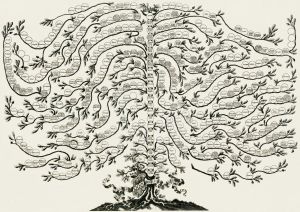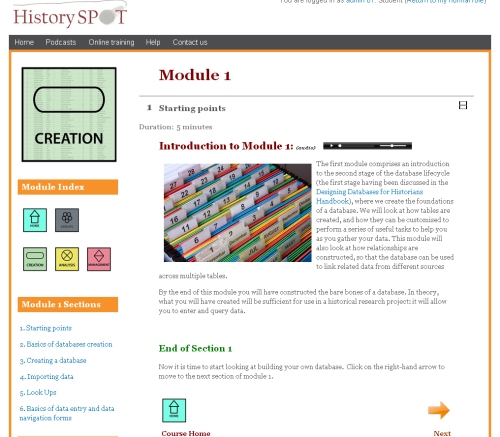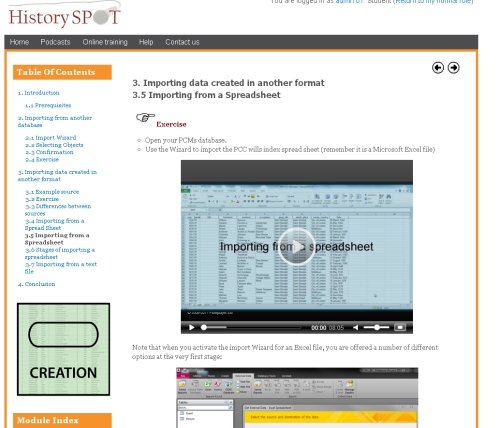 Today we are presenting the second of our recent additions to online training.
Today we are presenting the second of our recent additions to online training.
The Institute of Historical Research are very pleased to announce the launch of our first extensive and comprehensive online training course: Building and Using Databases for Historical Research. The online course covers the entire life-cycle of creating and using a relational database and can be undertaken at any time and completed at your own pace.
Depending on the type of data that you are using to carry out historical research, databases – such as Microsoft Access – can be an essential tool for the historian. However, few courses teach databases with historical data in mind or the needs of the historian. We believe that this course can fill that gap. The IHR have been running face-to-face training in Databases for a very long time, so the expansion to also provide the course online was an obvious choice for us.
Here is the information that we have on our website:
The aim of this training course is to equip you with the skills required to build and utilise a relational database suited to historical research. It is a non-tutor led course that can be completed at your own pace and at a time of your own choosing.
This course is a continuation of the free online course Designing databases for historical research handbook, which provides a free introduction for historians who wish to create databases. Building and Using Databases for Historical Research takes you through the entire process of creating and using databases and is, therefore, a much larger and comprehensive course. As such it is recommended to work your way through the Designing databases for historical research handbook before embarking on this course.
When you register for this course you will work through three modules that look at the following aspects of building and using databases:
Module 1 introduces the tools and techniques used in building a database for historical research. It covers the process of constructing related tables to accommodate your data, as well as introducing a number of practical measures that you can employ to control the quality of the data that you create. The Module also addresses what you need to do to incorporate existing data into a newly-constructed database.
Module 2 introduces the numerous ways that database tools can help you ask research questions of your data, ranging from simply finding individual instances of information at the micro level, through to providing complex networking and record linkage overviews. This Module also provides a basic introduction to employing queries highlight statistical patterns in large bodies of data through aggregation tools.
Module 3 addresses two main aspects of using a database in a historical research project: ‘managing’ the database and generating research output. The former element introduces various methods for ensuring good practice in terms of file and version control, back up and documentation – all important aspects of making sure the database is useful to your research; whilst the latter looks at ways of extracting data in various formats (including visual) to share with other historians.
The course costs £99 which includes access to the online materials, discussion forums and example data for a four month period. The course ends with a final exercise where you can test the knowledge that you have gained and receive some feedback.
For further information check out the IHR research training pages or have a look at the Designing Databases for Historical Research Handbook which contains more information on the course as well.



Excellent! My entire dissertation is based on the research parsed through 3 different databases. Fully support this move.
Thanks Elizabeth, we hope that plenty of other people will find this a useful course as well.